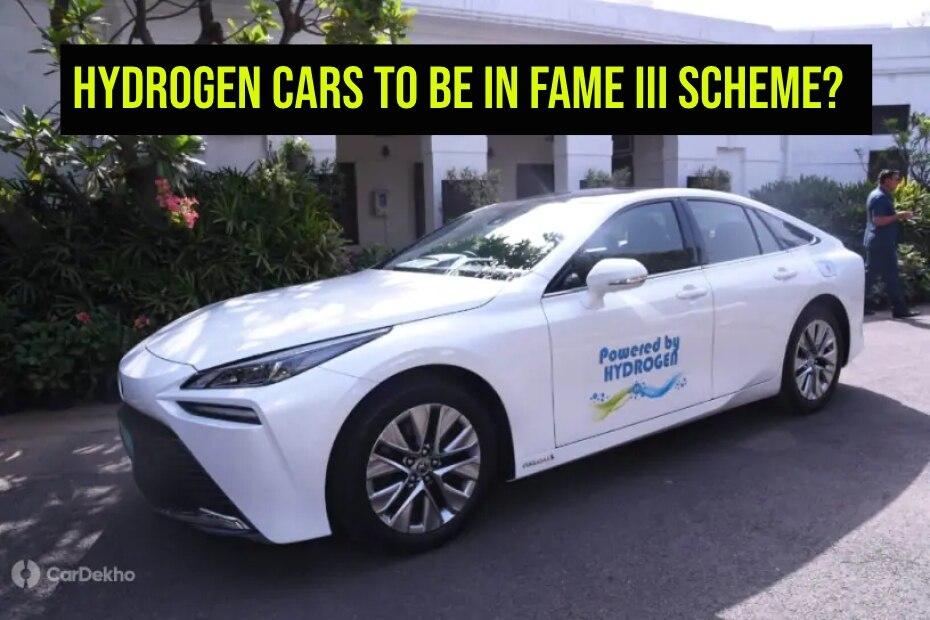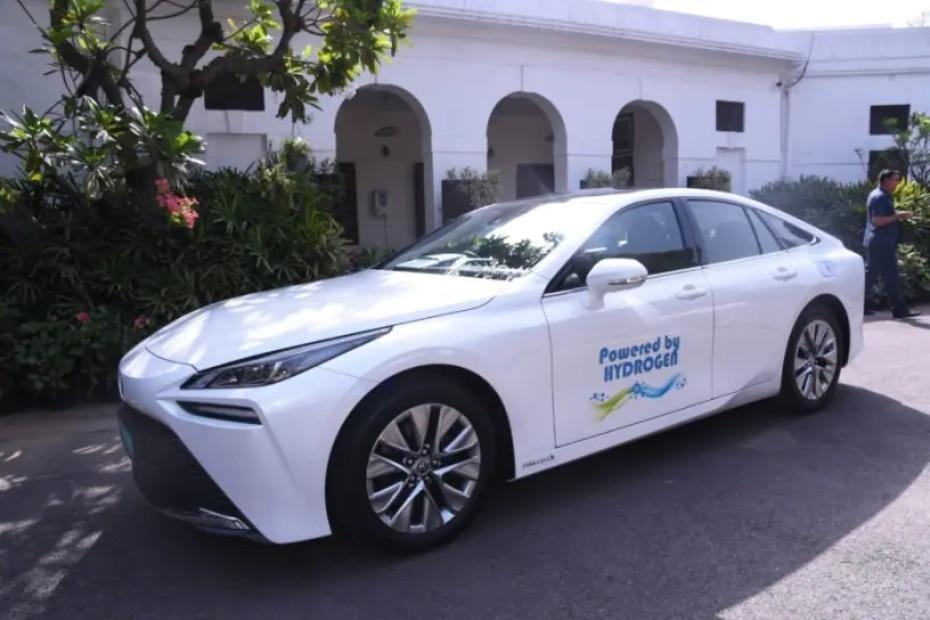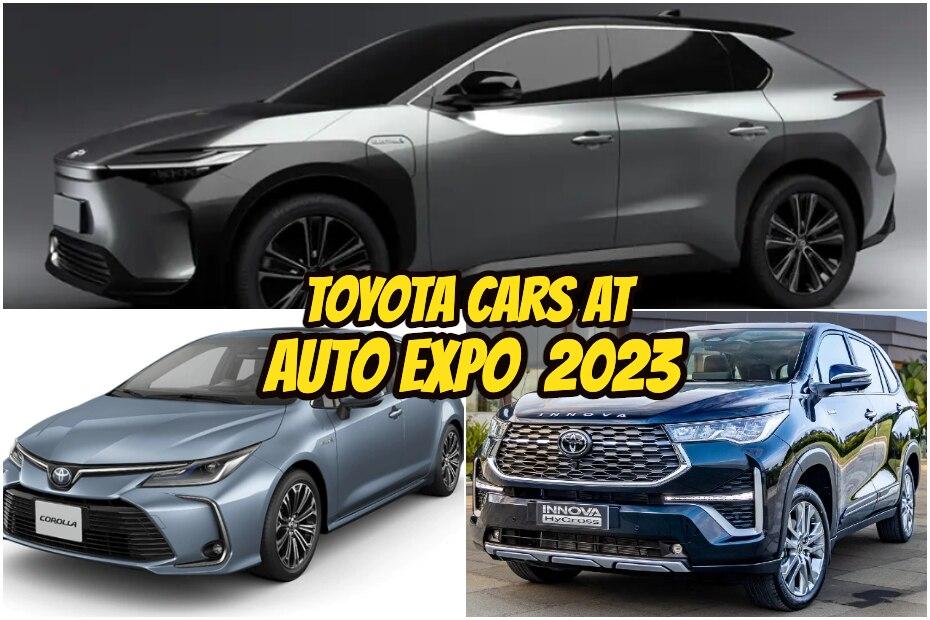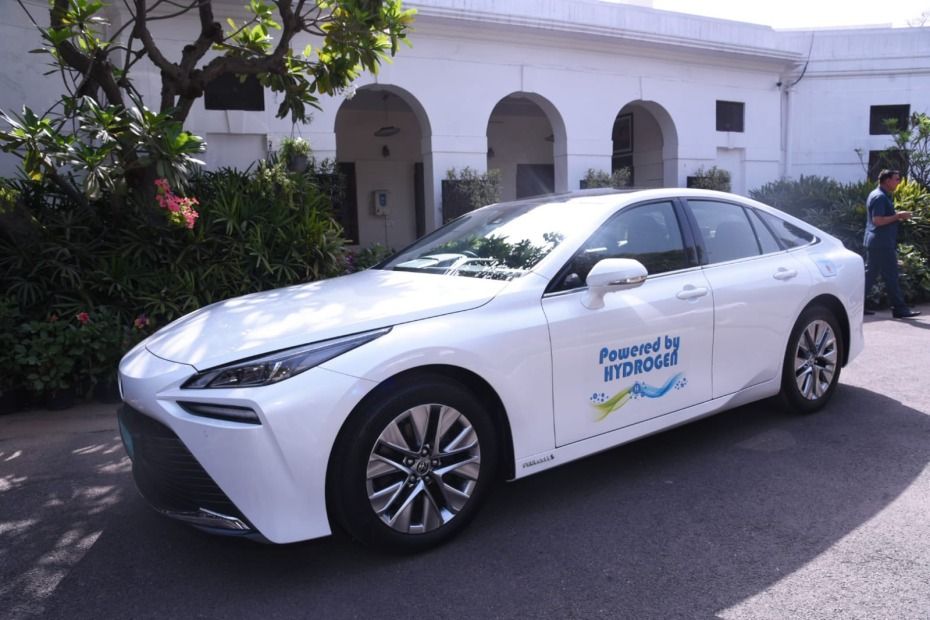Toyota And The Indian Government Are Using The Mirai For A Pilot Study Into Hydrogen EVs
Modified On Mar 31, 2022 06:00 PM By Sonny
- Write a comment
The project was inaugurated by Nitin Gadkari, Minister of Road, Transport and Highways
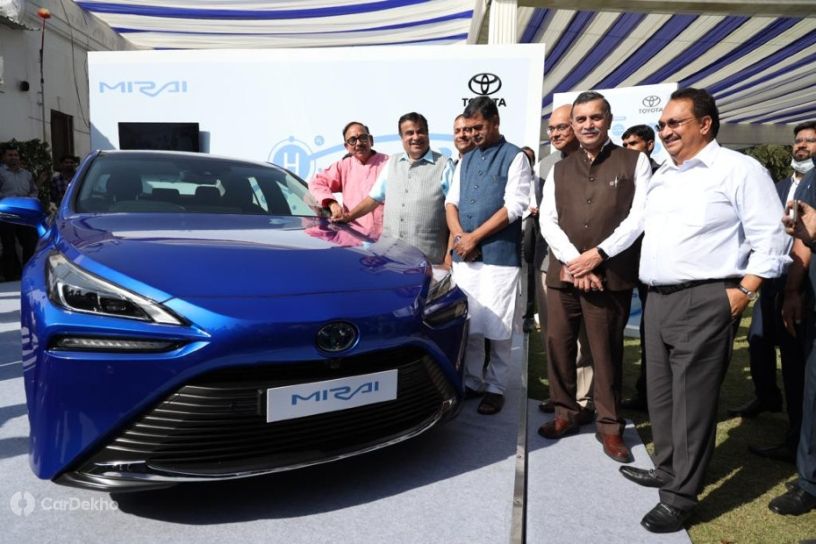
While battery-powered electric vehicles may be leading the charge for greener mobility, other clean technologies are still being discussed and developed. One of the major alternatives to lithium-ion battery vehicles is hydrogen fuel cell technology. It is now being seriously considered as a green mobility solution in India as well, especially for large vehicles that would cover long distances.
View this post on Instagram
The Indian government’s automotive testing agency, iCAT (International Centre for Automotive Technology), has entered into a memorandum of understanding with Toyota to study and evaluate the Mirai, a fuel cell electric vehicle (FCEV). The second-gen Mirai will be thoroughly tested to observe how the hydrogen-powered vehicle performs in Indian conditions, both in terms of climate and the roads. The pilot project was inaugurated by Nitin Gadkari, the Minister of Road, Transport and Highways.

A spokesperson for Toyota Kirloskar Motors commented on the announcement saying, “We are very excited and grateful that the Hon'ble Minister of Road Transport and Highways (MoRTH) has kindly consented to propagate the FCEV Mirai during this pilot study which is taking place at Delhi. We strongly believe that this will provide great encouragement and tremendous boost to all the stakeholders who are beginning to work towards hydrogen-based society in support of our national goals and are confident that India can lead in this direction in future. We applaud the Indian government’s relentless efforts towards promoting carbon neutral and electrified technologies and remain fully committed to supporting the national objectives.”
As the name implies, an FCEV uses stacks of fuel cells full of hydrogen to generate the electricity that drives the motors. One of the main advantages they can offer BEVs is the lower weight and faster top-ups. They can be refueled like a conventional combustion engine vehicle at a hydrogen station, which is a lot faster than charging a large battery to refresh its range until the next stop. EVs also suffer from a massive weight gain due to the battery packs, which can be countered by a fuel cell powertrain. This makes FCEVs especially viable for green versions of trucks and buses for mid- to long-distance journeys.

There is also the benefit of how the hydrogen fuel can be manufactured. In this case, the study focuses on the use of green hydrogen which is generated from renewable energy and biomass. This also makes it a potentially more sustainable fuel source than current BEVs which use a lot of special metals, the mining of which poses its own environmental problems.
The Toyota Mirai is one of the world’s few hydrogen FCEVs available to customers and has been since 2014. It has three hydrogen tanks that power an electric motor which has a peak output of 174SP. Its 330 fuel cells offer a claimed range of upto 650km between fill ups and the only emission from the car is water.

The Indian government has been considering the possibility of hydrogen fuel cell cars for some time now. While the Mirai has only been brought here as a part of the pilot program, another FCEV was cleared by the RTO in 2021: the Hyundai Nexo.
Considering the lack of existing infrastructure to support hydrogen vehicles, it is unlikely for the Toyota Mirai or Hyundai Nexo to be launched in India anytime soon. However, these pilot programs can open up future possibilities for such FCEVs to be made available to those who want to go green without the use of lithium-ion batteries.
4 out of 4 found this helpful











